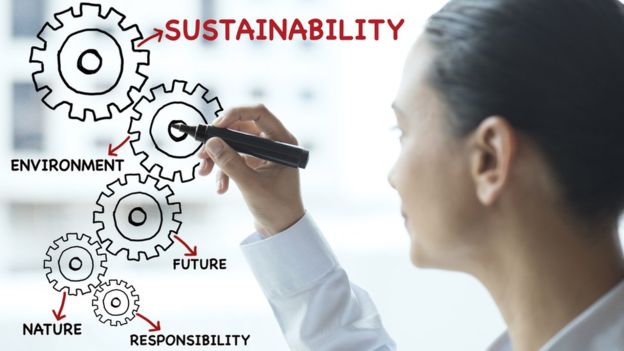Businesses are increasingly using Corporate Social Responsibility (CSR) initiatives to create positive brands and appeal to socially conscious consumers.

Well-designed CSR programs that focus on sustainable development – as defined by the United Nation’s (UN) Sustainable Development Goals (SDGs) – are powerful and essential tools for increasing standards of living around the world.
Not only do these CSR initiatives positively impact targeted individuals and communities, but they also benefit the companies. In light of these facts, businesses should increase the share of revenue they dedicate to CSR and design initiatives that use their own core competencies to promote sustainable development.
In a 1970 UN General Assembly resolution, wealthy countries pledged to give 0.7% of their gross national product in foreign aid for development objectives. While this pledge has been repeatedly affirmed over the years, few countries have actually met or exceeded this target. If multinational corporations joined this pledge and spent 0.7% of their annual revenue on CSR programs with a sustainable development focus they could have a significant global impact.
In 2015, the 2,000 largest companies in the world had combined revenues of $39 trillion, profits of $3 trillion, and assets worth $162 trillion. If these businesses donated 0.7% of their revenue to CSR initiatives focused on sustainable development they would contribute $273 billion annually. The UN’s SDGs currently face an estimated annual funding gap of $2.5 trillion. While closing this gap will not happen without increased commitments and investments from developed and developing countries alike, CSR programs can play an important role in achieving the SDGs by using a company’s specific expertise and resources to address development challenges in ways traditional foreign assistance programs cannot.
More important than how much money businesses give towards development goals is how they choose to spend it. Charitable donations from businesses can achieve the greatest impact when they take the form of CSR initiatives that align with the company’s core competencies and the unique ability of businesses to create economic opportunity.
Take Unilever’s Sustainable Living Plan backing the UN’s SDGs. As part of this plan, Unilever’s Lifebuoy soap brand launched a “Help a Child Reach 5“ program, which teaches proper hand washing techniques to help avert the deaths of children from preventable infections. The program has reached over 250 million people since it began in 2012. Another Unilever brand, Domestos, which makes toilet bowl cleaner, has committed to help 25 million people gain access to toilets by 2020, in line with the sixth SDG, which sets a global target of ending open defecation by 2030.
Gender equality and women’s empowerment are a crucial component of sustainable development and the UN’s fifth SDG. According to the World Bank and others, investing in women can significantly increase GDP growth and decrease poverty. To this end, Goldman Sach’s 10,000 Women initiative provides women with business and management education, mentoring, networking, and access to capital. 18 months after completing the program, 70% of graduates had increased their revenue and nearly 60% had added new jobs.
What gives these initiatives the potential to have such a positive impact on the world is that they are extensions of the corporations’ core businesses – companies doing what they do best in a way that benefits individuals who wouldn’t otherwise be touched by the company’s products or services. By focusing on core competencies, companies can decrease the costs and increase the payoff of CSR by benefiting from economies of scale and scope, and potentially creating new products and revenue streams.
In addition to these philanthropic programs, companies can also help achieve the SDGs by choosing to conduct business in emerging markets where they normally would not. For example, in February 2015, Marriott International opened a hotel in Port-au-Prince, Haiti that employs 200 people, including disadvantaged youth, relies on a local supply chain, and uses green technologies such as solar power. The company is replicating its success in Kigali, Rwanda, where they are currently partnering with the Akilah Institute for Women to provide hospitality training to young women who will work as supervisors when the new hotel opens. While building and staffing these hotels can certainly be more challenging than it would be elsewhere, the hotels provide the communities with jobs, training, skills, and economic opportunity, while also giving Marriott access to key emerging markets and generating revenue for the company as it carries out its normal business functions.
CSR can reap immense benefits not just for those on the receiving end of initiatives, but also for businesses themselves. Consumers care more and more about buying from ethically and socially responsible companies. CSR can also improve the reputation of a brand, provide a greater competitive advantage, and increase innovation, all of which increase a company’s revenue and profits. CSR initiatives have also been shown to improve employee engagement and retention.
CSR initiatives that focus on sustainable development can have an even greater impact than other CSR programs. Development that is sustainable does not require continuous funding, but instead endures well beyond the conclusion of a program. By investing in the lives of the poorest people around the globe and improving their standard of living, companies are building new markets to do business in and shaping future loyal consumers who will collectively have immense buying power. While seeing the full effects of these types of CSR investments in sustainable development requires a long-term strategy and vision, they are ultimately in the best interests of businesses and our global community.
Margo Berends is an expert in sustainable development with a research background in sub-Saharan Africa and program management experience in the Middle East, India, and Brazil. She is currently a Program Associate at Global Communities and a 2016 Sustainable Development Fellow at YPFP.This article was taken from here.
